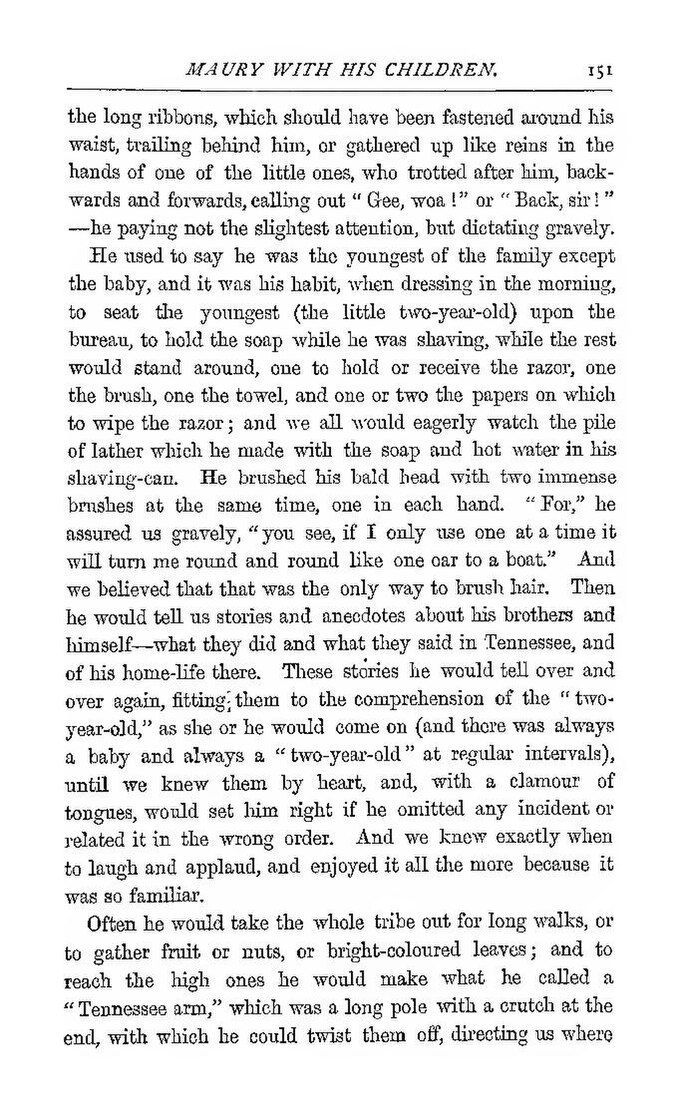the long ribbons, which should have been fastened around his waist, trailing behind him, or gathered up like reins in the hands of one of the little ones, who trotted after him, backwards and forwards, calling out "Gee, woa!" or "Back, sir!"—he paying not the slightest attention, but dictating gravely.
He to used to say he was the youngest of the family except the baby, and it was his habit, when dressing in the morning, to seat the youngest (the little two-year-old) upon the bureau, to hold the soap while he was shaving, while the rest would stand around, one to hold or receive the razor, one the brush, one the towel, and one or two the papers on which wipe the razor; and we all would eagerly watch the pile of lather which he made with the soap and hot water in his shaving-can. He brushed his bald head with two immense brushes at the same time, one in each hand. "For," he assured us gravely, "you see, if I only use one at a time it will turn round and round like one oar to a boat." And we believed that was the only to brush hair. Then he would tell us stories and anecdotes about his brothers and himself—what they did and what they said in Tennessee, and of his home-life there. These stories he would tell over and over again, fitting them to the comprehension of the "twoyear-old," as she or he would come on (and there was always a baby and always a "two-year-old" at regular intervals), until we knew them by heart, and, with a clamour of tongues, would set him right if he omitted any incident or related it in the wrong order. And we knew exactly when to laugh and applaud, and enjoyed it all the more because it was so familiar.
Often he would take the whole tribe out for long walks, or to gather fruit or nuts, or bright-coloured leaves; and to reach the high ones he would make what he called a "Tennessee arm," which was a long pole with a crutch at the end, with which he could twist them off, directing us where
